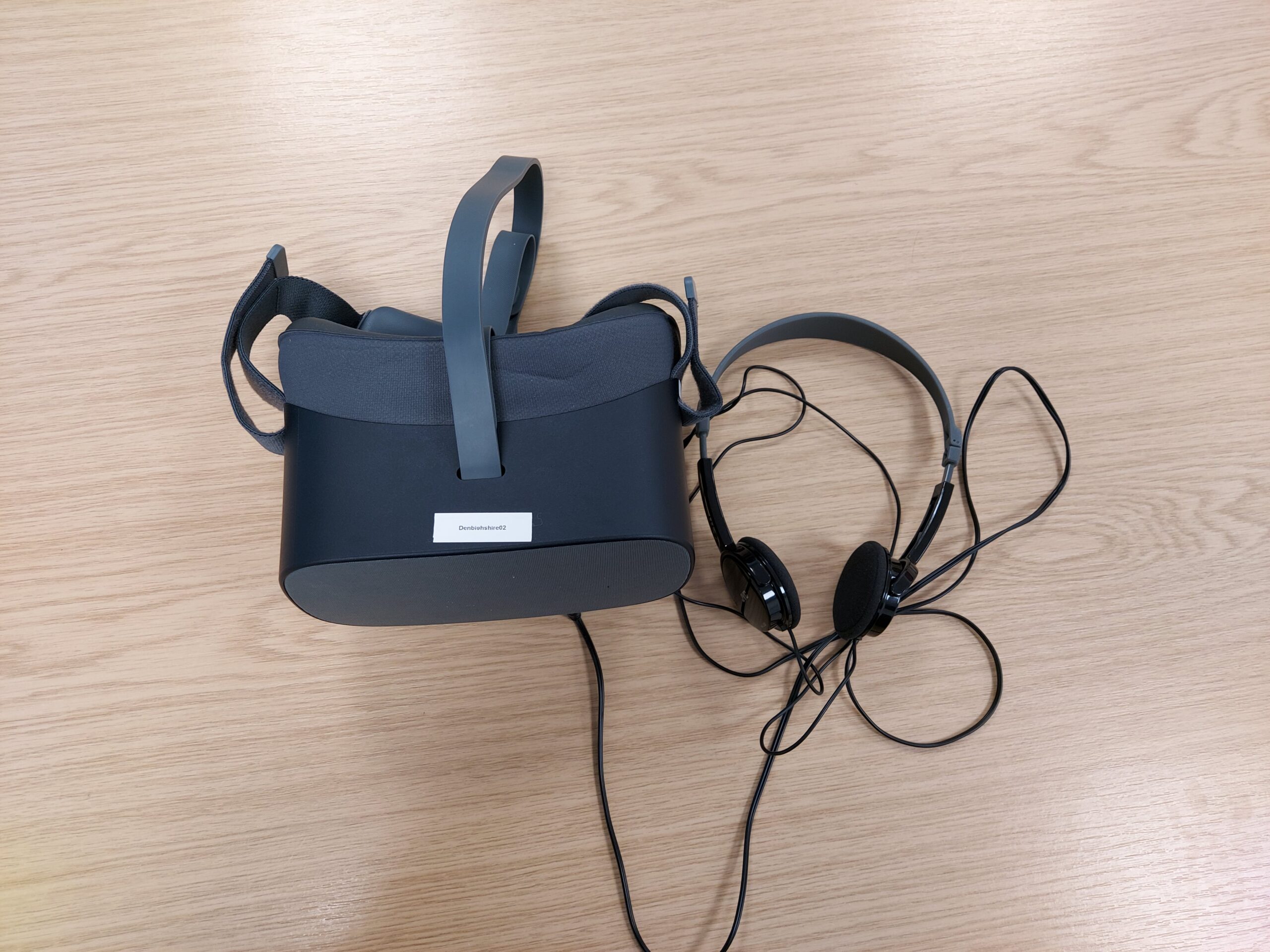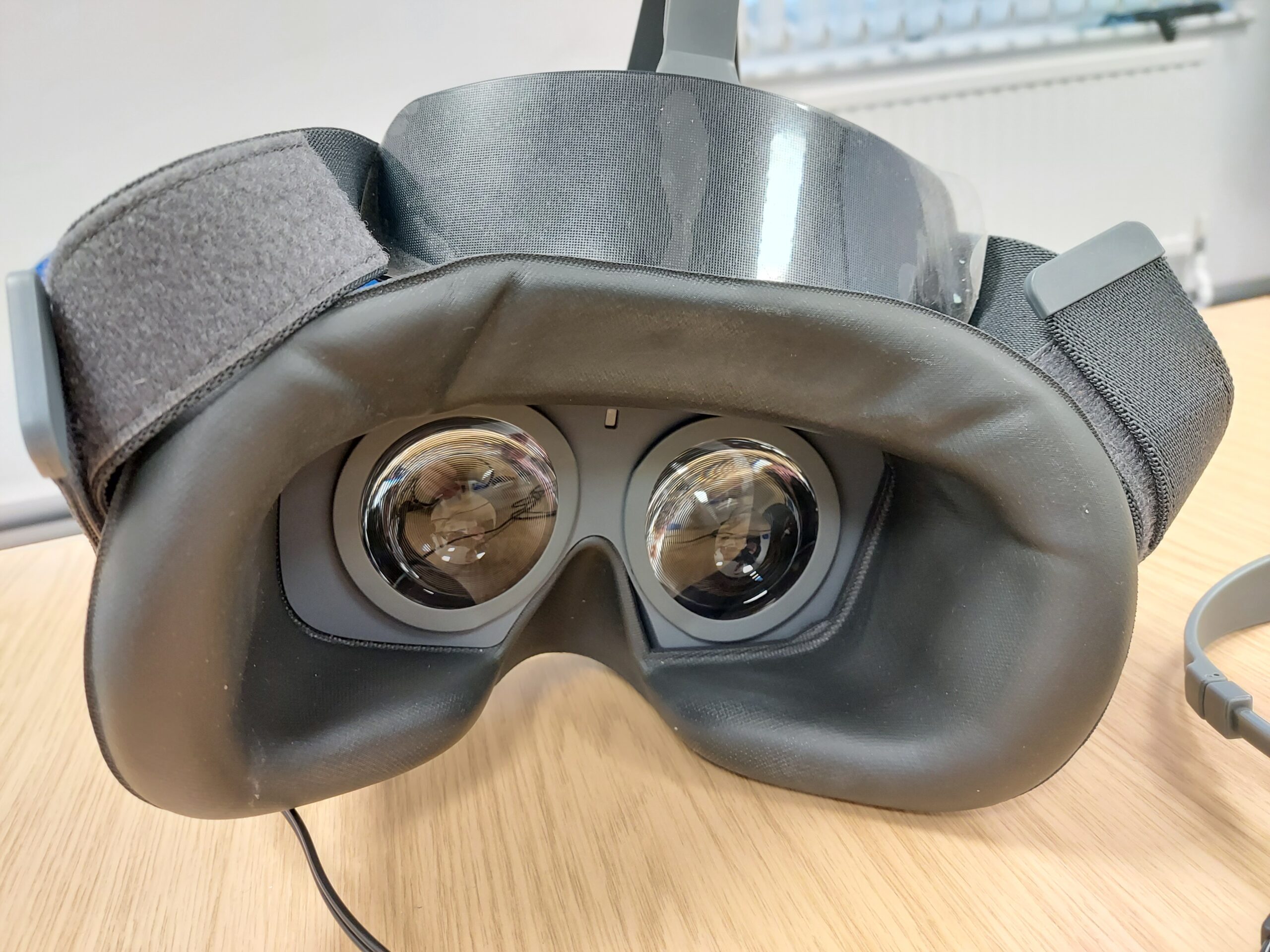As part of safeguarding week, Denbighshire County Council staff members within the Adult Social Care & Homelessness Service have taken part in unique Virtual Reality sessions to immerse themselves in topic areas such as trauma and safeguarding.
By embarking on a journey through Virtual Reality, practitioners experience a series of Virtual Reality films closely following the lives of children and young people from pre-birth to adolescence, helping to get a better understanding of areas such as trauma and neglect and how this might impact in later life.
This technology allows an immersive learning environment and helps promote active learning and development, deepening empathy and a focus on individual outcomes.

The Virtual Reality training is also used as an intervention tool in any safeguarding context to improve the lives of children and young people and provides professionals, parents, guardians, or care providers a unique perspective of the lived experience for someone working to manage trauma.
Kevin Jarvis, Team Manager, Business Support said:
“Based on direct experience of social care and the key issues facing individuals who have experienced traumatic life events, this unique approach to learning is proving popular and engaging and establishes a strong forum for discussion and reflection on the roots of trauma.
In Denbighshire we view the use of Virtual Reality as a progressive approach to learning and development which will complement our current delivery models and promote conversation on how we can all be more trauma informed in our approach to work.”
Laurel Morgan, Team Manager, Therapeutic Team said:
“Using VR has been a helpful tool to enhance reflective practice, generate further insight and develop our thinking around trauma informed practice. We have used VR within Children Services, with partner agencies and with the families in Denbighshire. It has been a helpful tool to promote engagement and understanding”.
Councillor Elen Heaton, Lead Member for Health and Social Care said:
“It is important that our staff have the best understanding of their specialist areas.
This Virtual Reality training will further enhance staff knowledge and understanding towards more vulnerable individuals, helping to nurture better and more informed responses.”


